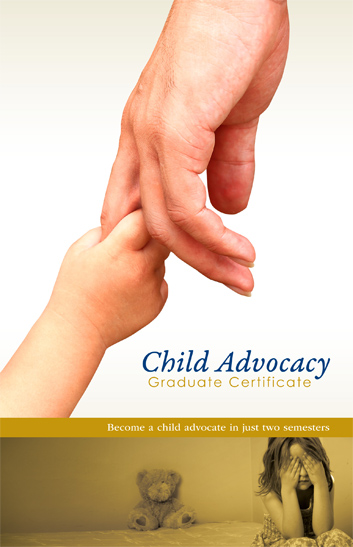 This fall, The University of Toledo is offering a new four-course Child Advocacy Graduate Certificate Program, designed to provide professionals with awareness of child abuse and neglect.
This fall, The University of Toledo is offering a new four-course Child Advocacy Graduate Certificate Program, designed to provide professionals with awareness of child abuse and neglect.
“It’s going to be something that’s very beneficial to a lot of professionals because we all, no matter what professions we are in, are going to come in contact with young people who may need to have advocates and may suffer from child neglect or abuse,” said Dr. Morris Jenkins, UT chair and professor of criminal justice and social work.
The program consists of four 6000-level courses:
• SOCW 6700: Perspective on Child Maltreatment and Child Advocacy;
• CRIM 6710: Profession and System Responses for Child Advocacy;
• COUN 6720: Advocacy for the Survivor of Child Neglect and Abuse; and
• CRIM 6730: Guided Study in Child Advocacy Issues.
The courses will start Monday, Aug. 20, when the fall semester begins, and students can apply through the UT College of Graduate Studies.
The child advocacy courses will be online and taught by professors of criminal justice, social work and counseling. The variety of expertise allows students to gain a better insight of the many different issues of child abuse and neglect, and be able to both recognize and react to situations involving child abuse, said Debra O’Connell, director of patient advocacy.
The Child Advocacy Certificate, which is received when the four courses are successfully completed, is relevant for any individual who wishes to be an advocate for abused and neglected children. Professionals who might find this certificate useful include social workers, lawyers, health-care professionals and educators.
Students in the program must have at least a baccalaureate degree. They are able to take the courses by themselves or complete them along with other courses as part of a Criminal Justice Graduate Degree Program.
Jenkins said the idea for this program came to him when he attended a training conference at Winona State University for the National Child Protection Training Center. While there, he learned that various colleges and universities had both undergraduate and/or graduate programs dealing with child advocacy.
The training conference taught attendees how to recognize child abuse and neglect, and subsequently be able to report incidents in order to provide help for the victims. The usefulness of these skills for professionals who deal with children on a regular basis is what sparked the idea for the certificate program at UT, he said.
Jenkins worked with the Lucas County Court-Appointed Special Advocates (CASA) to plan the program. CASA trains adult volunteers to work for the juvenile court judges to advocate for the best interests of the community’s abused and neglected children.
The program will provide students with a general understanding of the need for child advocacy and the moral and legal obligations for reported suspected child abuse or neglect.
For more information, contact O’Connell at debra.oconnell@utoledo.edu or 419.530.5421.